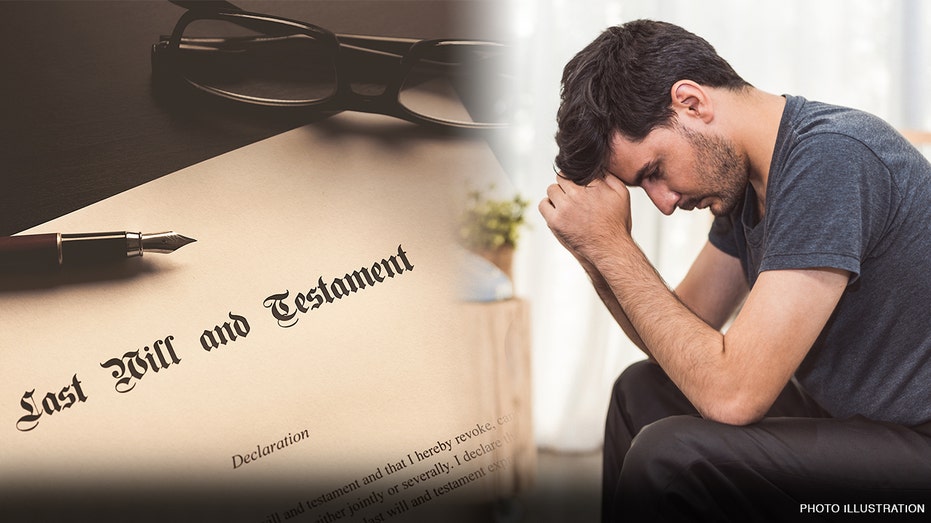Who needs a will?
Having a will is the best way to ensure that your assets are divided in the way that you truly want them to be
The sudden onset of the coronavirus pandemic is forcing many people to make sure their financial health is a priority along with their personal health.
At Future File, our legacy and wishes planning system helps customers plan for emergencies, aging and end-of-life situations.
IF CORONAVIRUS HITS YOUR FAMILY YOU'LL NEED TO HAVE THESE DOCUMENTS AND THIS INFORMATION READY
Naturally, we get asked a lot of questions about planning and preparation. But without a doubt, one of the most frequent questions we receive is “Do I really need a will?” And our answer is always, emphatically, “Yes!”
Without a legal will in place, your loved ones could wind up in a lengthy probate process, have relationship-ruining fights or have a judge that you’ve never even met before be the one making decisions for your loved ones in your absence.
Absolutely every adult should have a formal, legal will. While there are free or inexpensive forms that you can find online, based on your geographic location and assets, we do recommend working with a trusted estate planning lawyer to make sure that your will is prepared correctly, covers your needs and will be deemed legally valid in your state or states of residence.
Without a legal will in place, your loved ones could wind up in a lengthy probate process, have relationship-ruining fights or have a judge that you’ve never even met before be the one making decisions for your loved ones in your absence.

So, even if you think that you don’t have many assets, you don’t have children, your children are grown or you simply don’t want to think about it, having a will is the best way to ensure that your assets -- whether valuable investments or sentimental objects -- are divided in the way that you truly want them to be, with the least amount of burden placed on your loved ones.
IS IT TIME FOR AN EARLY RETIREMENT? USE THIS CHECKLIST
And, if you’re not convinced yet, here is why people in differing circumstances should have a will:
Parents with minor children: If you have children under the age of 18, a will is imperative to make sure that you are in control of how they will be provided for.
You want to make sure that they are taken care of financially, physically and emotionally in the way that you decide, rather than putting that decision into the hands of the state. This is true whether you are a single parent or not.
Parents with adult children: Nothing can tear a family apart more than a fight over money -- or even mom or dad’s favorite chair.
If you want to provide for your spouse and your children in a way that will leave everyone as allies vs. adversaries if you were to pass on, making clear decisions for them upfront that are legally enforceable via a will is an important piece of planning.
43% OF AMERICANS PLAN TO DELAY RETIREMENT DUE TO COVID-19
Married couples: Married couples may think that they don’t need a will, but if something happens to you and you don’t have one, depending on where you live, your spouse may have to endure a more lengthy, costly and frustrating probate process. And, you may have other family and friends that you would want to have certain things, but without any legal documentation, that may not happen.
Going through a full legacy planning process can also make sure that your will is consistent with your beneficiaries listed elsewhere, such as on insurance policies or retirement plans, so that, for example, an ex-spouse doesn’t end up with the proceeds from your insurance policy because you updated your will but forgot to update your beneficiaries.
And a bonus tip: make sure that your spouse can find and easily access your will and your legacy and wishes planning system, as many times spouses are unclear about where important financial and account paperwork is located, which can cause extra stress during an already difficult time.
Unmarried adults/adults who live alone: If you are unmarried or live alone, and you don’t have a Will, the probate process will determine who your next of kin is that would inherit your assets.
IRS RETIREMENT PLAN DISTRIBUTION REPAYMENT DEADLINE APPROACHING
This again may be a lengthy process and someone unfamiliar with you will be deciding on your behalf. And, people often forget about making provisions for pets, but especially if you live alone, you will want to make sure that your pets are taken care of in the way that you are most comfortable.
Aging adults/adults with medical issues: If you are dealing with any kind of serious medical or aging issues, you will want to set up your Will while you are of clear and sound mind. You don’t want anyone to take advantage of you or have reasons for your arrangements to be contested.
Also, if you are in this situation, having appropriate Powers of Attorney, including ones for health care and property, and clearly communicating your wishes can help to ensure you are properly taken care of and lessen decision-making burdens for your loved ones.
GET FOX BUSINESS ON THE GO BY CLICKING HERE
Another bonus tip: if you have children over the age of 18, if you don’t have a will for them, do put in place a legacy and wishes planning system in case of emergency and include Power of Attorney documents for both property and health care.
Once your children are legal adults, doctors may not share information with parents in cases of medical emergencies and you may not be able handle certain financial affairs for them without those documents.
But, even if you don’t fall into one of the above categories, absolutely every adult should have a will. It’s a small action that you can take now to make an extremely difficult time for your loved ones a little easier.
Carol Roth is the creator of the Future File legacy planning system, “recovering” investment banker and host of "The Roth Effect" podcast.
CLICK HERE TO READ MORE ON FOX BUSINESS




















